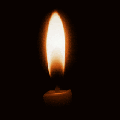4thace reviewed Glass Constellation by Arthur Sze
Review of 'Glass Constellation' on 'Goodreads'
4 stars
This is a big book covering fifty years of the author's poetry, in which you get to see the evolution of his style and the topics that are on his mind. The individual poems or the sections the longer
poems are divided into are mostly of medium length throughout. The poems generally do not try to tell any kind of coherent overall story. This sometimes gives a timeless feeling, like a dream. Instead, they slide between different striking images with only the faintest of connections visible between them, not narrative except in short, condensed stretches. Much of the imagery is drawn from the American southwest where he lives, but there are distant locales, or even cosmic musings. Lots of times we see something out of nature, also moments when humans interact with nature. His usual strategy is to follow one of these up with a completely human-centric line or two, …
This is a big book covering fifty years of the author's poetry, in which you get to see the evolution of his style and the topics that are on his mind. The individual poems or the sections the longer
poems are divided into are mostly of medium length throughout. The poems generally do not try to tell any kind of coherent overall story. This sometimes gives a timeless feeling, like a dream. Instead, they slide between different striking images with only the faintest of connections visible between them, not narrative except in short, condensed stretches. Much of the imagery is drawn from the American southwest where he lives, but there are distant locales, or even cosmic musings. Lots of times we see something out of nature, also moments when humans interact with nature. His usual strategy is to follow one of these up with a completely human-centric line or two, even cutting over in the middle of a line. My understanding is this is a prominent feature of classical Chinese poetry This can generate a feeling of shocking contrast or suggest a mysterious connection through the juxtaposition, or maybe both. When the author does something like this, it can surprise the reader with an emotional payoff.
Since the poems were composed over such a long period of time you can see innovations and evolution both in form and in ideas. From time to time there are unnamed characters (real or imagined) showing up for just a glimpse. One or two pieces collected here are in the form of a list of names lacking even verbs, still others lists of commands or suggestions directed to the reader as though something urgent needed to be done. In a few of the later poems, including the title poem, there are strikethroughs making them look either like drafts or like unspoken thoughts.
His very simple style appeals to me very much because I have for a long time entertained the idea of writing something just stinging the most striking phrases one after the other, like shiny beads on a string.

